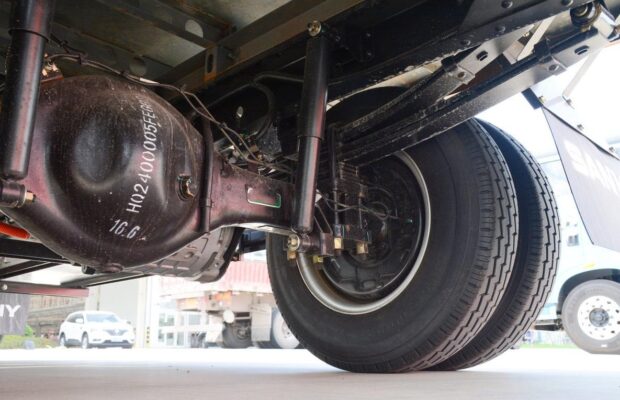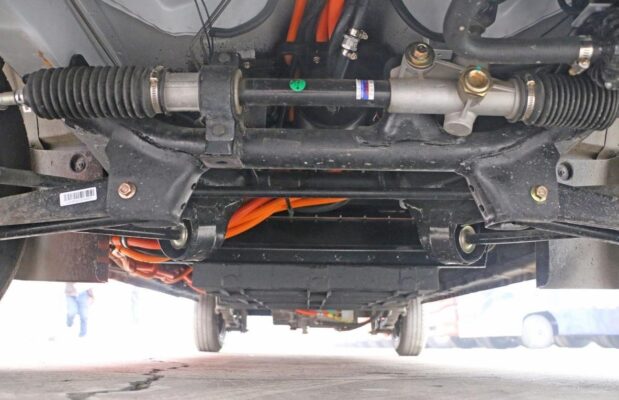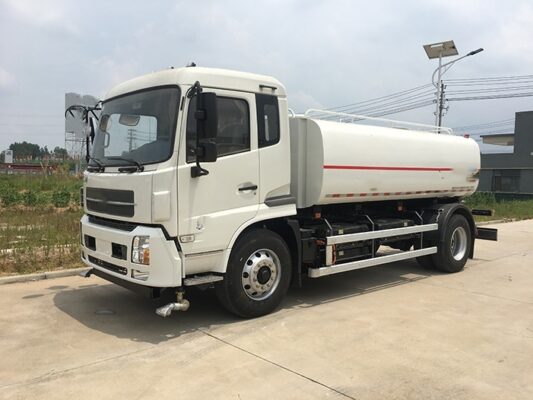इलेक्ट्रिक ट्रक ज्ञान
How to Drive an Electric Truck to Save Electricity
पोष्ट गरिएको बाट भएर बिजुली ट्रक
Car enthusiasts are well aware that electric trucks come with a significant advantage in terms of cost compared to fuel trucks. For electric trucks, conserving electricity essentially means saving money. Under what circumstances can the battery of an electric truck achieve the greatest power savings? Firstly, when manufacturing electric trucks, it is essential to adopt new technologies, new materials, and new structures. The new technology pertains to battery technology that meets the vehicle’s cruising range requirements and a potent power system. Beyond a high battery power conversion rate, support from systems such as power feedback is also necessary to effectively minimize power consumption waste. The selection of materials used for the vehicle demands careful consideration. उदाहरणका लागि, the lightweight design of the entire vehicle and the shell could potentially have an adverse impact on the power system; the structural design of the vehicle requires simplification, and so on.

Naturally, this is a crucial aspect to bear in mind when choosing a vehicle. But what specific points do we need to be attentive to during actual usage?
For an electric truck to extend its driving distance and conserve electricity, in addition to the aforementioned factors, it is also closely related to the driver’s driving methods. The following shares some valuable experiences.

-
When driving, do not follow the vehicle in front too closely. Maintain a considerable distance from the vehicle ahead and avoid sudden stops by following the vehicle in front to prevent power wastage. Of course, this is primarily for personal safety. Let me elaborate on this. While driving, many individuals tend to focus solely on the vehicle immediately in front. However, when conditions permit, it is advisable to keep an eye on the vehicle several positions ahead. By doing so, you can anticipate situations in advance. Maintaining an appropriate distance allows for better reaction time in case the vehicle in front decelerates or stops suddenly. This not only helps avoid unnecessary power consumption due to sudden braking but also reduces the wear and tear on the braking system. Moreover, it enhances overall driving safety and reduces the risk of accidents.
-
Electric trucks are frequently utilized within factories. Those who operate within factory premises must be vigilant and spot pedestrians early to make timely judgments regarding the accelerator pedal. In factory environments, where traffic patterns can be complex and pedestrian movement is unpredictable, drivers need to be highly alert. Early detection of pedestrians allows for smooth and gradual adjustments to speed, minimizing the need for sudden braking or acceleration. This not only conserves power but also ensures a safe and efficient operation within the factory premises.
-
Do not overload the electric small truck. When it comes to the cargo capacity, drivers often have a common concern. Whether it is a fuel truck or an electric truck, the issue of overloading seems unavoidable. After all, the greater the cargo capacity, the higher the potential income. फलस्वरूप, many individuals are inclined to load as much as possible onto the vehicle. However, the more the electric truck is overloaded, the greater the energy consumption from the battery. Even if you manage to load a substantial amount, it does not translate to power savings. Overloading not only strains the battery and drivetrain but also adversely affects the vehicle’s handling, braking performance, and overall safety. To achieve optimal power efficiency and ensure the longevity of the vehicle, it is crucial to adhere to the recommended cargo capacity.
-
Electric trucks also include electric refrigerated trucks that carry frozen food. These vehicles are equipped with an on-board refrigerator, and the freezer consumes electricity. When transporting luggage that does not require freezing, the freezer can be switched off to conserve electricity. When carrying goods that need refrigeration, simply adjust the temperature inside the compartment appropriately. Even if it is not set too low, power consumption can still be controlled. This judicious use of the freezer function based on the specific requirements of the cargo helps optimize power usage. It ensures that electricity is consumed only when necessary and at an appropriate level, contributing to overall power savings and extending the vehicle’s operational range.

निश्कर्षमा, driving an electric truck in a power-efficient manner involves a combination of maintaining a safe following distance, being vigilant in specific environments like factories, adhering to the recommended cargo load, and intelligently managing the power consumption of additional features such as refrigeration units. By being conscious of these factors and adopting responsible driving practices, drivers can maximize the energy efficiency of their electric trucks, reduce operational costs, and contribute to a more sustainable transportation solution.